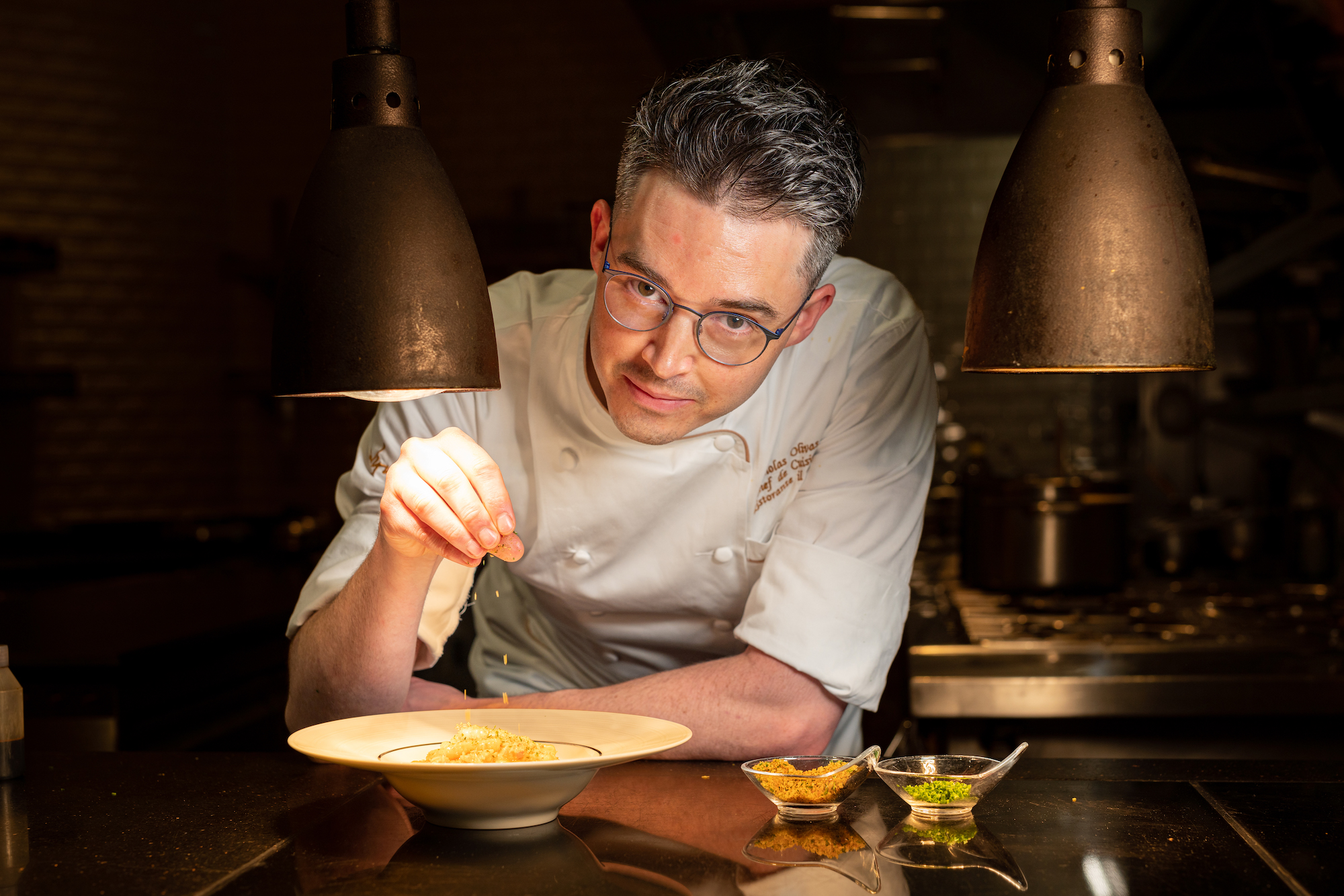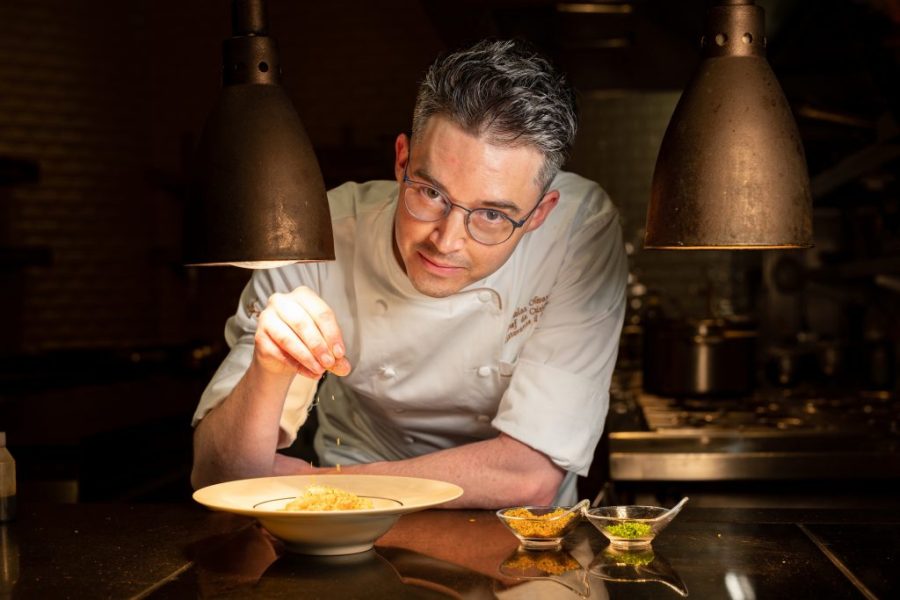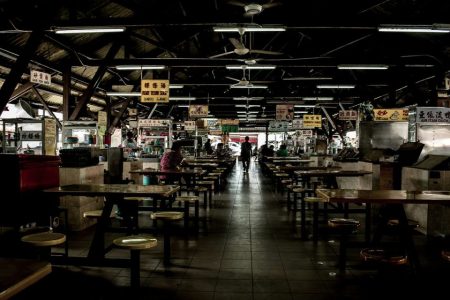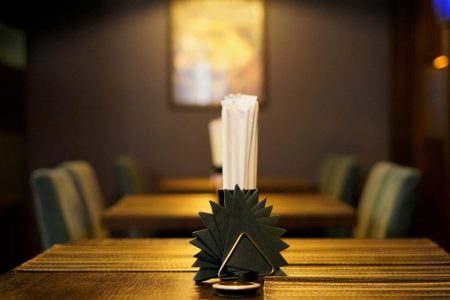Some people relax with candles and a long bath, a good book, a stroll through the park or a bottle of wine. Nicholas Olivas, the Chef de Cuisine of Ristorante il Teatro at Wynn Macau, finds his zen while making pasta.
Born in the US, the 37-year-old Italian-American chef found his way to Italian cuisine after years of training – first at a bakery, then on to culinary school at Le Cordon Bleu. Olivas also worked at ocean-to-table Mediterranean seafood restaurants under heavy hitters like Italian-American Chef Paul Bartolotta.
In this “Know Your Chef”, we journey back in time with Olivas, who walks us through his early baking adventures to an immersive year in Italy and, finally, how he landed a job in Macao.
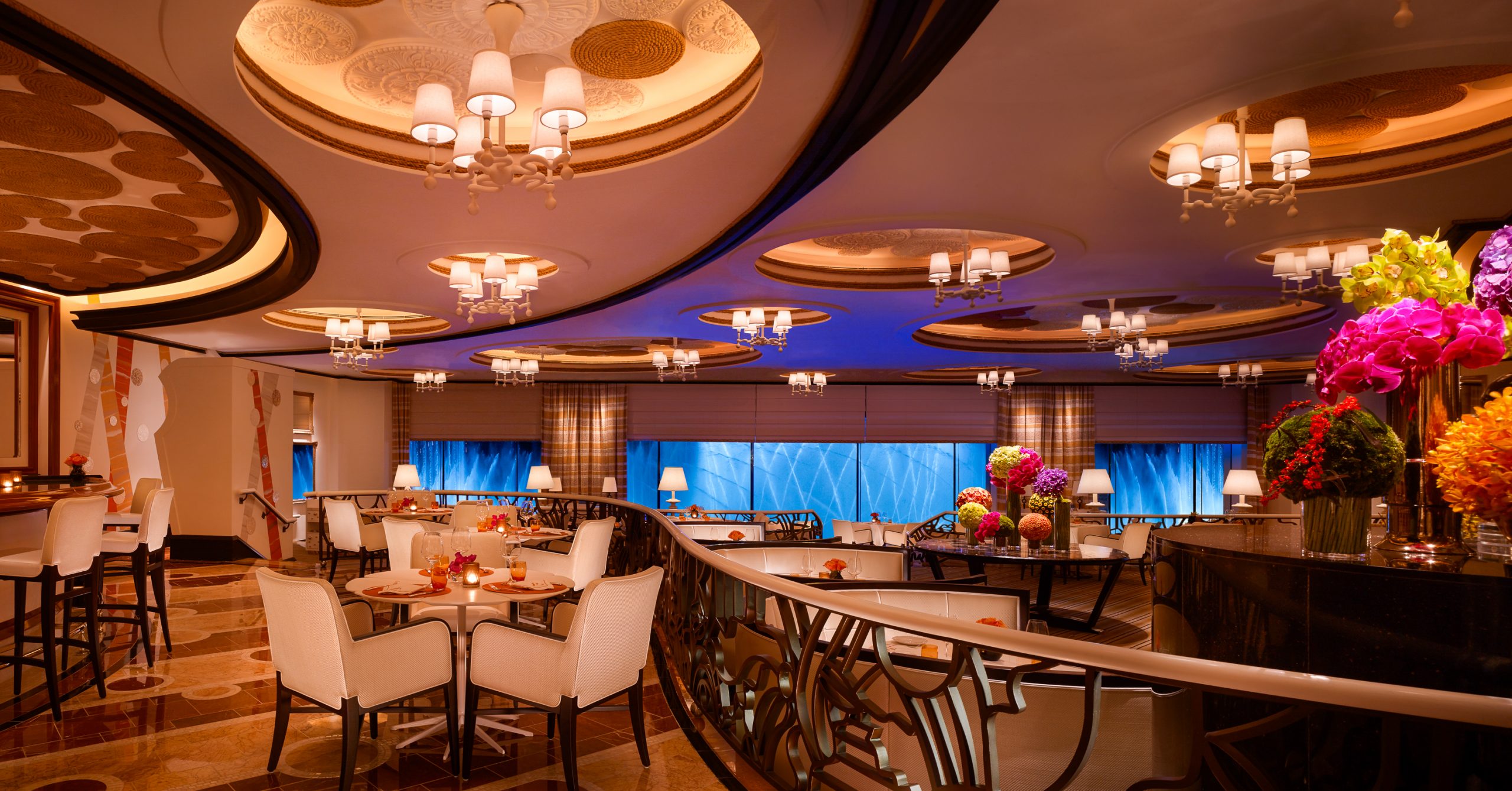
Early days: While growing up in Denver, Colorado, Olivas spent most of his time outdoors with family or friends. After school and on the weekends, he recalls building forts with friends in his backyard, hiking, running, fishing, mountain biking, and picking crab apples to make cider. Olivas had a mischievous streak, too, and once, recalls stealing raspberries from his neighbour’s yard.
“[We had] a sense of community growing up,” Olivas recalls. “I was very fortunate that I had that – playing with friends, riding bikes, building ramps, getting into a bit of trouble.”
At 12 years old, Olivas’ mother taught him to make his first dish: lasagna. “Super easy to make, right? Pasta, ragù, tomato, cheese, boom, done!” Olivas says. “We all loved it – it became a family meal and a way to connect with my mother.”
Since he loved Mrs. Fields Cookies, Olivas also got into baking. “My brothers and I used to take off on the weekends, riding our bikes to the mall in search of cookies,” Olivas says. “And then they finally made a cookbook, Mrs. Fields Cookie Book: 100 Recipes from the Kitchen of Mrs. Fields. I bought it right away and I was making cookies constantly – it was so much fun.”
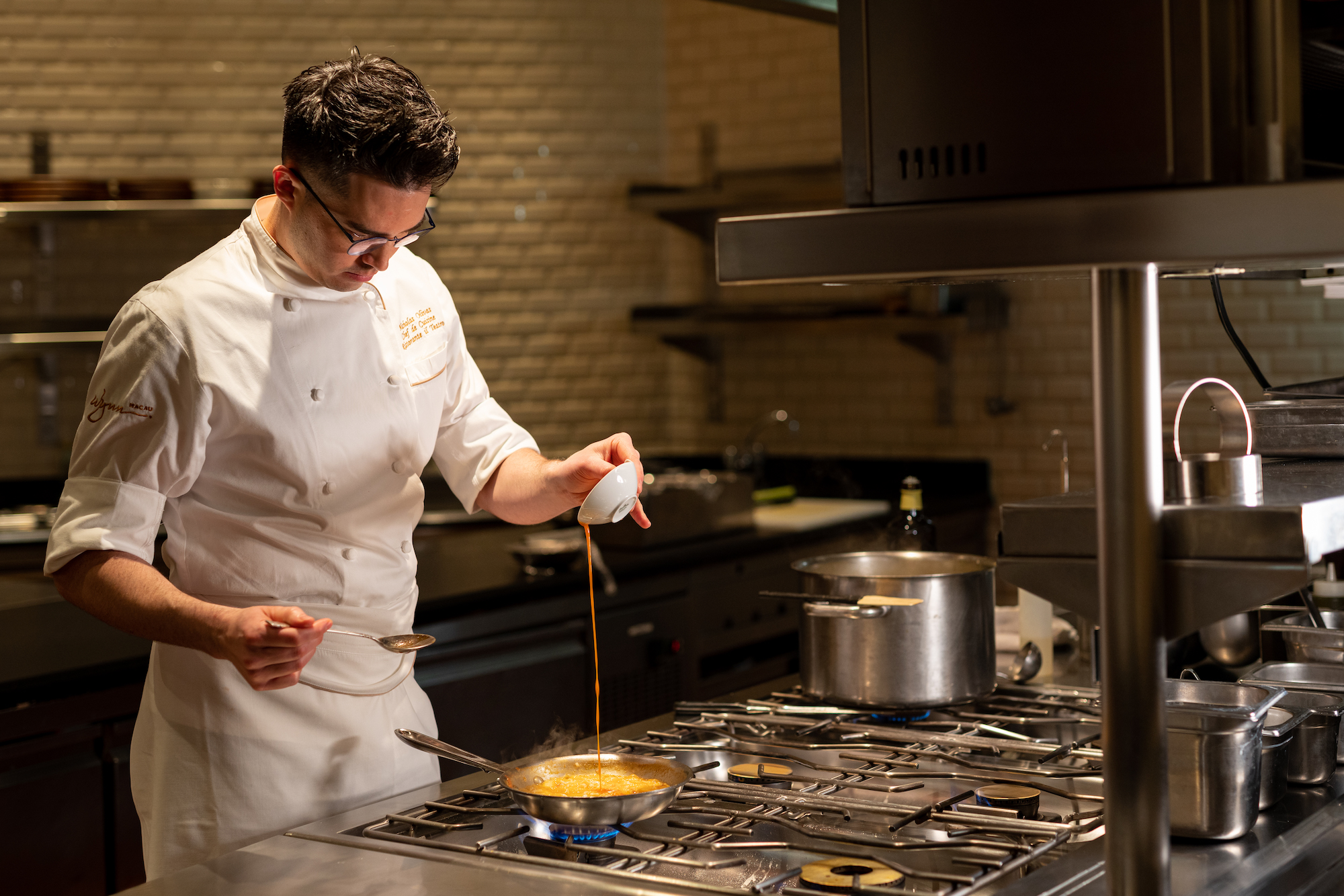
His first job: In 2002, Olivas began studying hospitality management at the University of Colorado Denver and, during his first year of college, a friend from church told him about a job at a family-owned bakery, called Angelina’s.
Interested, Olivas applied for and was working there a week later. He woke up early before class to bake bread and bagels, left to attend lectures, and then raced back to the bakery. “I realised that when I went to the lecture hall, there was nothing there and it wasn’t exciting,” Olivas says. “When I went to the bakery, I was happier because I was transforming raw ingredients into bread, bagel, cake and pastries.”
Gaining momentum: After that first baking job, Olivas knew that culinary school was his future. He started at one of the world’s most prestigious academies, Le Cordon Bleu Las Vegas, in 2004. A year into culinary school, Olivas visited Bartolotta Ristorante di Mare at the Wynn, Las Vegas with his family.
The restaurant’s chef-owner, Paul Bartolotta, walked from table to table, greeting each group. When he finally reached Olivas’ table, Bartolotta discouraged Olivas from continuing culinary school. “It’s a hard career and you won’t see your family, it’s very stressful,” Olivas recalls Bartolotta saying. “He was adamant. But I said, ‘No, I will do it.’”
At the end of the meal, Bartolotta handed his card to Olivas and told the aspiring chef to call him when he was looking for work. Olivas went on to thrive in culinary school, where he apprenticed at the Eiffel Tower Restaurant in Las Vegas under Chef John Joho. “It was short-lived as I realised French cuisine was not the journey I wanted to take,” Olivas says. “There is nothing wrong with French cuisine – it’s only that the cuisine just never spoke to me. I did not get the same excitement or nostalgia as I do with Italian cooking.”
Olivas graduated in 2006 with a degree in culinary arts, occupational science and hospitality management. He learned all the fundamentals and building blocks of becoming a professional chef. Essentially, why chefs do what they do – or don’t do – in the kitchen.
“For example, cutting a carrot in a brunoise [the finest dice] – why are you cutting it like this? Why can’t it be cut into a bigger dice? Because we want texture, large dice are used for stocks and sauces. Giving structure on how and why we do it with a story is extremely important, instead of just saying OK, here take that and cut it.”
During culinary school, Olivas started gravitating towards Italian cuisine. In his teens, he would have described it as “red sauce and meatballs”, but he knew this was far from the truth. “What I wanted was to truly grasp what Italian cuisine is – how regional Italian cuisine differs across Italy – and from US Italian cuisine – where each dish originates, whether the dish is original or an interpretation,” Olivas says.
His big break: When he started job searching, Olivas gave Bartolotta a call. Within two months, he joined Bartolotta Ristorante di Mare in Vegas and learned all about Mediterranean cuisine through the chef’s ocean-to-table menu, which showcased about 100 species of seafood.
“Everything,” Olivas replies, when asked what he learned from Bartolotta. “All these types of seafood and being able to work with it – knowing how to cook it and break it down – that is something that really stuck with me. If it hadn’t been for Paul [Bartolotta] or that experience, I’d probably just be filleting salmon, and everybody can fillet a salmon.”
Over the six years he worked there, Olivas moved up the ranks quickly. First Bartolotta taught him to make pasta, then meat and seafood, and finally, Olivas became a sous chef.
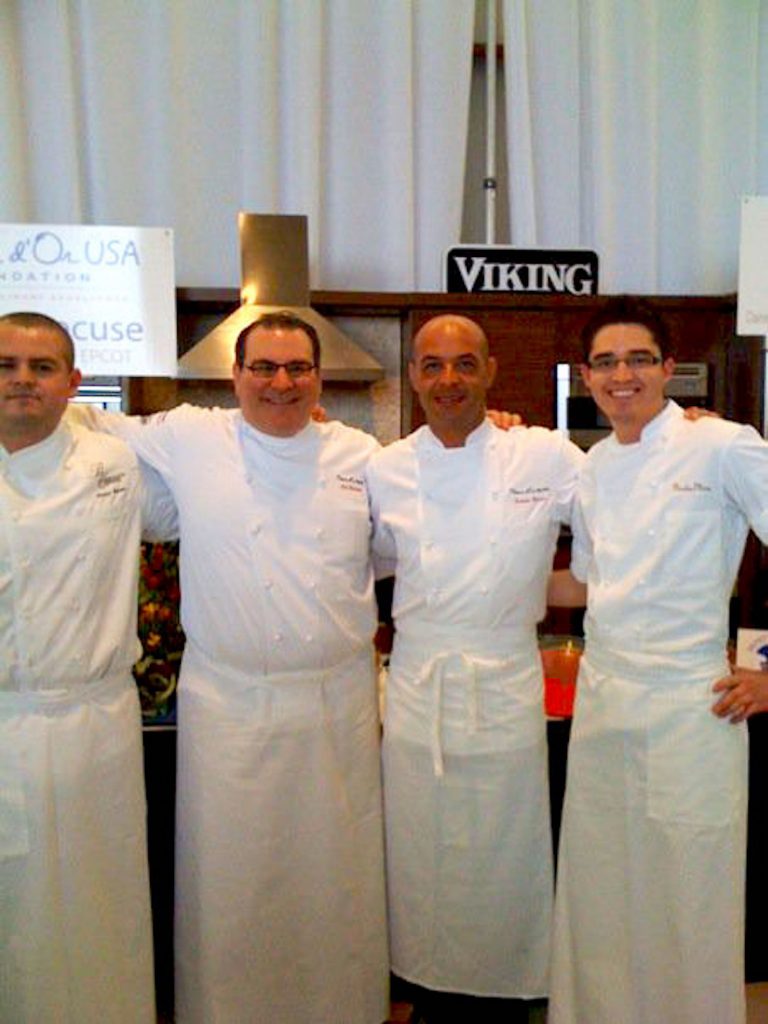
In 2011, he resigned from the restaurant – with the support of Bartolotta – to pursue an internship in Italy for a year. He worked with prominent chef Accursio Craparo in two Sicilian restaurants (Michelin-starred Osteria La Gazza Ladra and Michelin-recommended La Locanda del Colonnello), followed by three-Michelin-starred St Hubertus at Hotel Rosa Alpina up north in the Dolomites. “So I went [from the] south all the way to the north, and seeing the difference in styles, ingredients and techniques were really mind-blowing.”
A year later, Olivas returned to Denver and, though Bartolotta offered him another job, the young chef wanted to stay in his hometown, so he joined Chef Kevin Taylor at his Italian restaurant, Prima Ristorante, for a stint. “It was a good opportunity as I was a young but mature chef,” Olivas says. “I said, ‘Well, let’s see what’s happening in Denver’s food scene,’ which at the time was still up and coming.”
But fearing his creativity would fizzle if he stayed too long in one place, Olivas looked farther afield for inspiration once again. He moved to Bali and worked at Soleil, a Mediterranean restaurant at The Mulia Resort and Villas. After four years in Nusa Dua, a headhunter approached him in August 2015 about a job as head chef of Ristorante il Teatro in Macao, which piqued his interest.
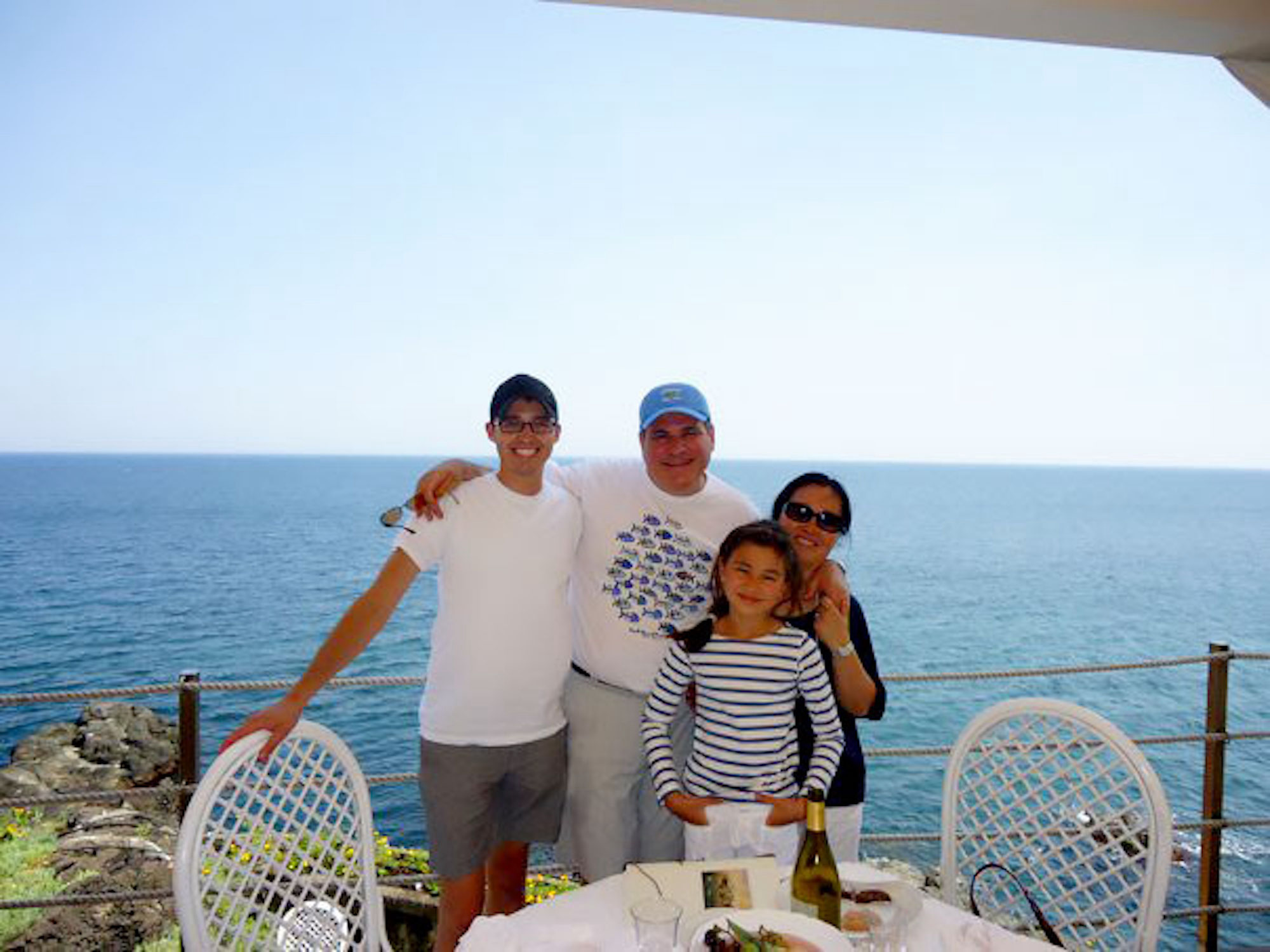
His current job: To prepare for the job interview, Olivas had to design and execute a tasting menu for a group of Wynn Macau’s executives. It was a “nerve-wracking experience,” he says.
Olivas presented a six-course menu, which started with an amuse-bouche, followed by fusilli, tortellini, ricotta gnocchi, veal Milanese (a thick, tender “Cotoletta”-style veal rib chop) and saute di vongole (Italian-style sautéed clams). That same day, in November 2015, Wynn Macau offered Olivas the job as head chef of Ristorante il Teatro.
Although he was nervous, Olivas aspired to uphold the standards Anthony Alaimo (Il Teatro’s former head chef) had built. He hit the ground running and, in 2017, had a chance to put his stamp on the menu for the first time. “There was just one or two fresh pastas [at the time], so we need to revamp the pasta – it’s what I do and it needed to be done,” he adds.
From mouthwatering appetizers such as the chilled lobster salad and crispy eggplant parmigiana to meat and fish dishes like la bresse coquelet [whole roasted baby chicken with sage and white balsamic chicken jus] and orbetello sea bream [pan-roasted fillet with caviar and black mussel cream], the Italian restaurant is easily considered the go-to place to impress friends and family.
Over the years, Olivas has travelled to Hong Kong, Bali, Thailand, China or Japan to try out different cuisines and find inspiration. “Going to food and fish markets, that was something really cool to do,” Olivas says. “To see these beautiful products and as chefs, we think, ‘Oh, what can we do with this?’ I like to take photos of the products and then ask ‘Can we get this [in Macao]?’”
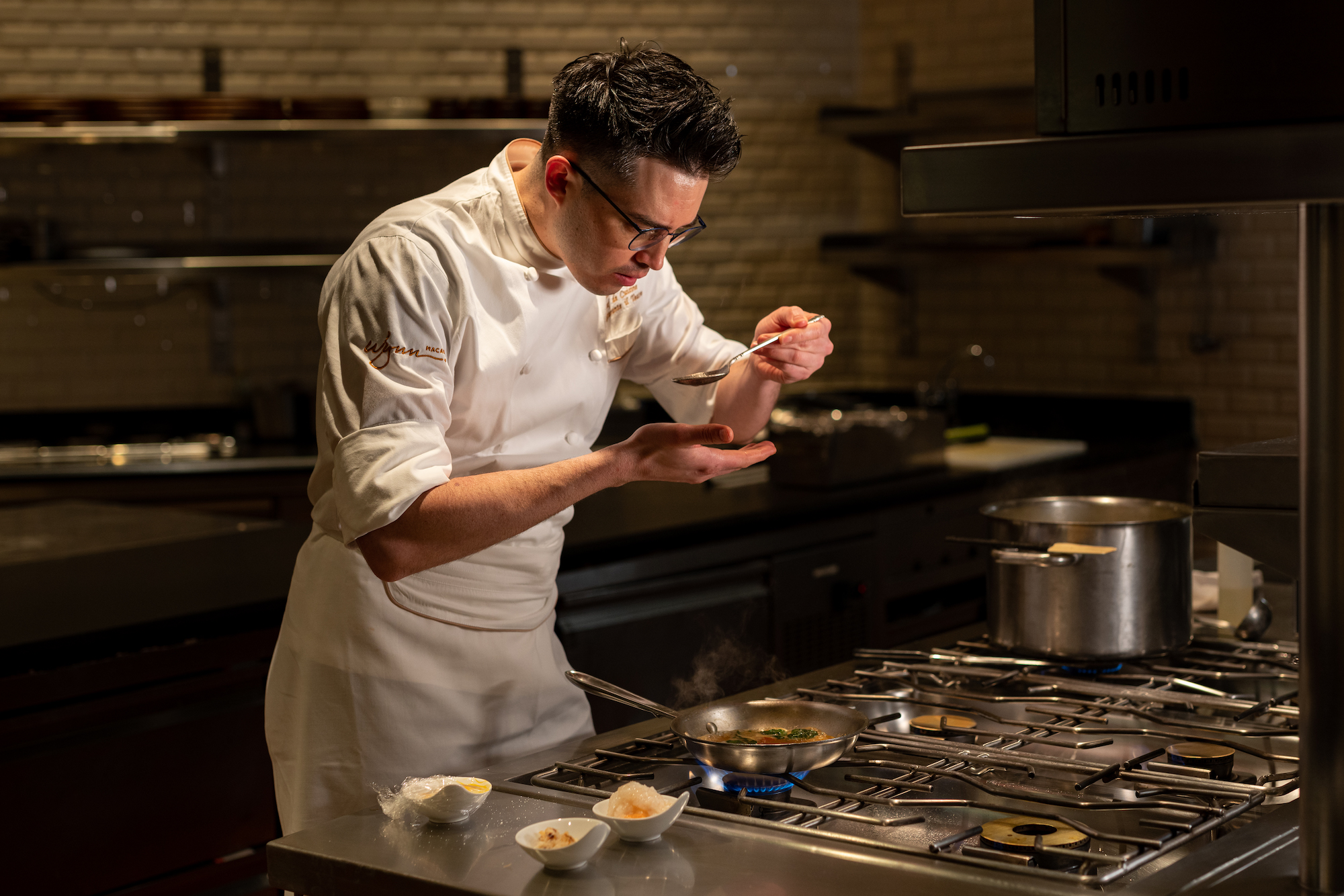
Biggest challenge: Professionally and personally, the pandemic has posed the biggest challenge for Olivas. “Not being able to go home is a challenge and sacrifice we make,” he says. “You have to be strong for your team. You have to be their mentor, leader and friend because everybody is going through the same thing. We all haven’t left Macao and that’s been a challenge, but we’ve overcome it here at Wynn – by helping each other out.”
Most meaningful culinary experience: “Hands down, it would be staging [working as a sous chef for top chefs] in Italy,” Olivas says. “It was like the most terrifying, exciting, eye-opening experience of my life. I basically walked in as a young American skinny aspiring cook who is bottom of the hierarchy just having to learn, be humble, listen and absorb knowledge. Learning the language and appreciating where I was in the moment was the most impactful experience of my life.”
Cooking specialities: Olivas has a few tricks up his sleeves but says “making pasta is my zen.” Name any pasta, from tagliatelle to tortellini, fettuccine to fusilli, and he’s mastered it all.
“Arriving in the morning before everyone gets here and being able to create that experience with myself and the dough sounds a little cheesy, but it really is meditative to make pasta dough and watch somebody eat it afterwards,” he says.
Favourite dish to make: “Cavatelli is a fun pasta to make. It’s versatile and doesn’t get enough attention. I personally love [Il Teatro’s homemade cavatelli dish] because it’s a crab on crab, and it’s my dish,” says Olivas.
Olivas creates this signature dish, which he added to the menu in 2017, using spanner and dungeness crab meat mixed with a special sauce made from crustacean stock, mint, basil, tomatoes, garlic, lemon, chilli and butter. “I was able to put my touch on it with my seafood and pasta knowledge and combine it all into one dish. It’s amazing!”
Parting advice: “You know this life [being a chef] is not for everybody,” he says. “If you’re an aspiring chef, browsing cookbooks, old recipes and social media nowadays is a great tool. But definitely, listen and be willing to learn. I’m still learning and learning every day because as soon as you stop, you’re lost.”
